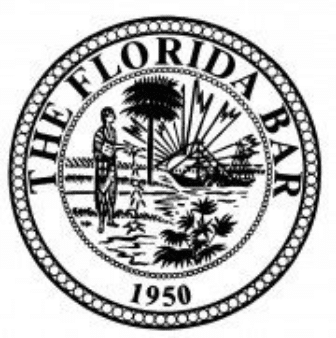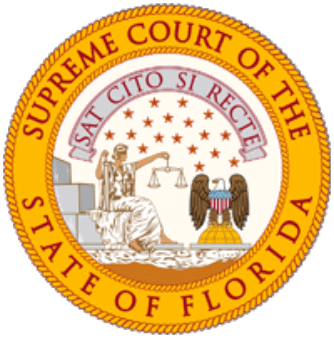Tips for Law Office Personnel
Individual lawyers and law firms are ultimately responsible for complying with the IOTA rule; however, FFLA recognizes that it may be helpful if law office personnel coordinate these steps. Therefore, the following suggestions are offered to simplify the coordination efforts for law office personnel.
Most institutions offer IOTA accounts. However, some branch offices may not be familiar with IOTA. If your contact has questions about IOTA, please direct them to www.FundingFLA.org or contact FFLA toll-free at (800) 541-2195 for assistance.
To comply with the mandatory IOTA rule, the lawyer or law firm will need to advise FFLA whenever a new IOTA account is opened, or an existing IOTA account is closed.
If your law office is establishing a new IOTA account:
Follow the steps listed in the Enrollment Information section.
If your office has closed an existing IOTA account:
Send FFLA a letter advising that the IOTA account has been closed. The letter should give the IOTA account number assigned by the eligible institution, the institution’s name and address, the name and address of the lawyer or law firm, and the date the IOTA account was closed.
Members of The Florida Bar are required to certify annually in writing on the annual membership fee statement that they are in compliance with, or exempt from, the provisions of the IOTA program as set out in rule 5-1.1(g) Rules Regulating The Florida Bar.
The Supreme Court of Florida’s IOTA program is a simple and effective means for generating needed support for law-related public interest programs. IOTA is also a successful inter-professional endeavor of Florida’s legal and financial communities. Through Florida’s leadership, IOTA now operates across the country.
All lawyers or law firms handling client or third person trust funds must open an interest-bearing IOTA account. Eligible institutions vary widely in terms of “net yield” (interest rate less reasonable service charges and fees) their IOTA accounts pay, so shop around for institutions offering attractive rates and fees. Enrollment takes just three easy steps:
Step One: Download IOTA Enrollment Forms (“Notice to FFLA Form” ) and (“Notice to Eligible Institution Form” ) for each IOTA account that will be established.
Step Two: Open an IOTA account(s) with an eligible institution.
Step Three: Mail the completed Notice to FFLA form to: FFLA, IOTA Operations, 175 Lookout Place, Suite 100, Maitland, FL 32751.
Client and third-person funds should be deposited in a lawyer’s or law firm’s IOTA account unless the funds can otherwise earn income for the client or third-person in excess of the costs incurred to secure such income.
In determining whether a client or third person’s funds can earn income in excess of costs, the lawyer or law firm shall consider the following factors:
- The amount of the funds to be deposited;
- The expected duration of the deposit, including the likelihood of delay in the matter for which the funds are held;
- The rates of interest or yield at eligible institutions where the funds are to be deposited;
- The cost of establishing and administering non-IOTA accounts for the client’s or third person’s benefit, including service charges, the costs of the lawyer’s services, and the costs of preparing any tax reports required for income accruing to the client’s or third person’s benefit;
- The capability of eligible institutions, lawyers or law firms to calculate and pay income to individual clients or third-persons;
- Any other circumstances that affect the ability of the client or third person’s funds to earn a net return for the client or third person.
The lawyer or law firm shall review its IOTA account at reasonable intervals to determine whether changed circumstances require further action with respect to the funds of any client or third person.
With Nota, Florida lawyers have cost-free access to the latest in trust accounting technology and to a provider who can help them focus on the growth and continued success of their practices. This new (and free) member benefit is designed to help lawyers more easily manage their trust accounts while complying with Florida Bar rules.
- Register at www.trustnota.com/TheFloridaBar
On June 25, 1993, the board of directors of FFLA defined “reasonable” as it applies to financial institution service charges and fees paid by IOTA under the Rules Regulating The Florida Bar. The purpose of the board action was to prevent the IOTA program from bearing the cost of special services or fees such as wire transfers, return check and overdraft charges, fee for use of uncollected funds, etc., which are not related to the basic operation of a trust checking account.
Reasonable Service Charges That May Be Deducted by Financial Institutions from IOTA Account Interest:
The following charges and fees have been defined as “reasonable” and are the only service charges or fees permitted to be deducted from interest earned on IOTA accounts. These service charges or fees may be deducted from IOTA account interest only at such rates and under such circumstances as is the financial institution’s customary practice for all of its interest-bearing checking account customers:
- Per check charge
- Per deposit charge
- Fee in lieu of minimum balance
- Federal deposit insurance fee
Financial institutions also may recoup special costs for their participation in IOTA through deduction of a reasonable IOTA handling/administrative fee.
Procedures for Lawyers and Law Firms:
According to The Florida Bar, a lawyer may deposit the lawyer’s own funds into trust to replenish a shortage in the lawyer’s trust account. Any deposits by the lawyer to cover trust account shortages must be no more than the amount of the trust account shortage, but may be less than the amount of the shortage. The lawyer must notify the bar’s lawyer regulation department immediately of the the shortage in the lawyer’s trust account, the cause of the shortage, and the amount of the replenishment of the trust account by the lawyer.
Funds deposited by mistake into the IOTA account:
If a trust deposit intended to be invested for the client or third person erroneously is deposited into the IOTA account, contact FFLA for a prompt refund of interest paid to FFLA on that deposit.
In compliance with the mandatory IOTA rule, the lawyer or law firm will need to advise FFLA whenever an IOTA account is closed.
If your office has closed an IOTA account:
Send FFLA a letter advising that the IOTA account has been closed. The letter should give the IOTA account number assigned by the eligible institution, the eligible institution’s name and address, the name and address of the lawyer or law firm, and the date the IOTA account was closed.
So as to give voice in FFLA governance and grant policies, FFLA Bylaws provide for automatic membership for IOTA participants. Membership in FFLA does not require IOTA participants to pay dues or make contributions to FFLA.
However, you may decline such membership in writing to FFLA.
If at any time in the future you wish to be a member of FFLA by virtue of participation in IOTA, your membership will be effective upon receipt of such request.




